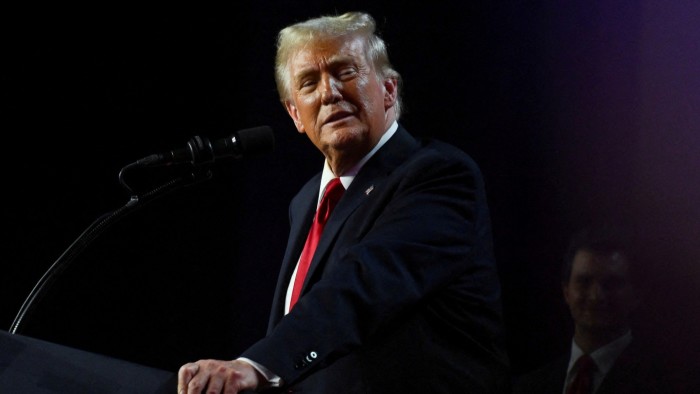Unlock the White House Watch newsletter for free
Your guide to what the 2024 US election means for Washington and the world
High growth, high interest rates and high inflation as a combination did not work out so well for Joe Biden and Kamala Harris. Will Donald Trump fare any better? Last week, equity markets surged upon Trump’s election win. The S&P 500 was up almost 5 per cent and many financial stocks — banks, M&A advisers and private capital firms — jumped more than 10 or 15 per cent on belief that lighter regulation and more deals are on the way.
Less conspicuous, perhaps, but more important was the yield on the 10-year US Treasury bond. Since the Federal Reserve started cutting its benchmark short-term rates a couple of months ago, the 10-year yield has oddly climbed steadily. Last week it reached 4.4 per cent.
Markets are looking through near-term loosening to the medium-term picture for inflation and growth. While inflation has abated after the central bank’s rapid tightening of policy in 2022 and 2023, US consumer price index growth remains above the Fed’s 2 per cent target.
On top of that, Trump has promised tax cuts and tariffs, which will be inflationary. Fed chair Jay Powell has rejected suggestions that he might leave his term early, allowing Trump to install an ally at the central bank.
Regardless, monetary policy controls short-term rates, not long-term ones. Credit investors should be concerned — but so should equity investors, with the S&P 500 already up more than 25 per cent for the year.
Interestingly, credit spreads for high grade and high-yield bonds remain at historically tight levels — less than 3 percentage points for junk bonds. That means corporate borrowing costs remain manageable, with little evidence that the market is worried about approaching defaults. But if base rates remain at above 4 or 5 per cent, the question is whether corporate profits and household income are resilient enough to withstand elevated interest rates for longer than anticipated.
Then there is the matter of what happens if price rises start to accelerate again and how the Fed — whoever is in charge — decides to respond. Pimco last week told the FT that Treasury yields could again converge with equity returns: as fixed income coupons peg higher, the present value of corporate free cash flows will dip, hitting equity valuations — something Joe Biden’s economy painfully experienced in 2022.
For now, the capital markets seem to think that similar economic circumstances under Biden and Trump deserve very different treatment. But do not expect that discrepancy to endure.
Source link









